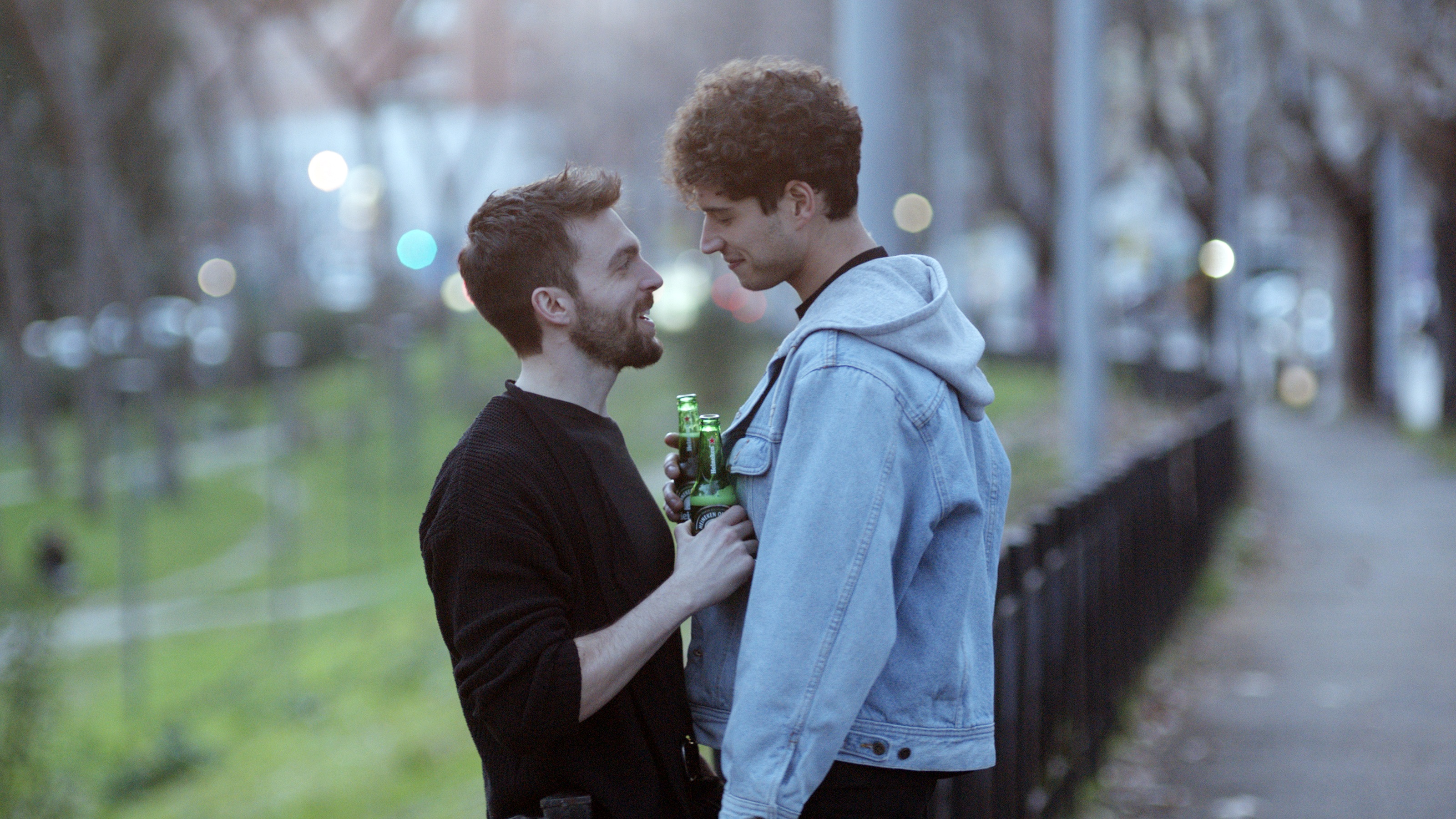Mascarpone is a heartfelt Italian romantic dramedy that blends themes of self-discovery, friendship, and new beginnings with a light, bittersweet tone. Directed by Alessandro Guida and Matteo Pilati, the 2021 film explores the complexities of starting over after heartbreak, offering a mix of tender humor and emotional honesty. Set in the vibrant city of Rome, the movie captures both the beauty of Italian culture and the universal struggles of finding oneself after life takes an unexpected turn.
The story follows Antonio (Giancarlo Commare), a gentle and somewhat dependent man whose life is suddenly upended when his husband decides to leave him. Having been in a long-term relationship that defined his entire adult life, Antonio finds himself without a home, a job, or even a clear sense of who he is outside of his marriage. With nowhere else to go, he moves in with Denis (Eduardo Valdarnini), a charismatic and free-spirited flatmate who works as a baker and offers Antonio both shelter and unconventional guidance.
Determined to regain his independence, Antonio takes a job at a local bakery, where he not only learns the art of pastry-making—symbolized by the creamy richness of mascarpone—but also begins to rebuild his confidence. Along the way, he meets Luca (Gianmarco Saurino), a charming and grounded man who introduces the possibility of new romance. However, Antonio’s journey is less about rushing into another relationship and more about confronting his own insecurities, learning to stand on his own, and redefining what love and partnership mean to him.

The film’s charm lies in its balance of lighthearted moments and emotional depth. The witty, often playful banter between Antonio and Denis provides comic relief, while Antonio’s quieter, introspective scenes offer a genuine portrayal of vulnerability. The directors use food, especially baking, as a symbolic thread throughout the story—mixing, kneading, and creating desserts becomes a metaphor for patience, transformation, and the slow process of healing.
Visually, Mascarpone embraces the warmth of its setting. The cinematography captures Rome in golden hues, from bustling cafés and artisan bakeries to sunlit streets and cozy apartments. This inviting atmosphere mirrors Antonio’s gradual shift from feeling lost and adrift to embracing the possibilities ahead of him. The soundtrack, with its soft pop and romantic ballads, complements the film’s emotional arcs, underscoring moments of both melancholy and joy.
The performances are a standout element. Giancarlo Commare delivers Antonio’s evolution with sensitivity, moving seamlessly from wide-eyed uncertainty to quiet self-assurance. Eduardo Valdarnini’s Denis is a vibrant contrast, embodying spontaneity and self-confidence while also showing flashes of his own vulnerability. Gianmarco Saurino’s Luca adds a gentle romantic presence, offering a relationship that is rooted in mutual respect rather than dependency.
Ultimately, Mascarpone is not just a romantic story—it’s a celebration of personal growth, resilience, and the friendships that carry us through our lowest moments. It invites audiences to see endings not as failures, but as opportunities for reinvention. With its charming blend of romance, comedy, and heartfelt life lessons, the film leaves viewers with the comforting reminder that, like a good dessert, the sweetest things in life are worth the patience they require.


-1751965785-q80.webp)
